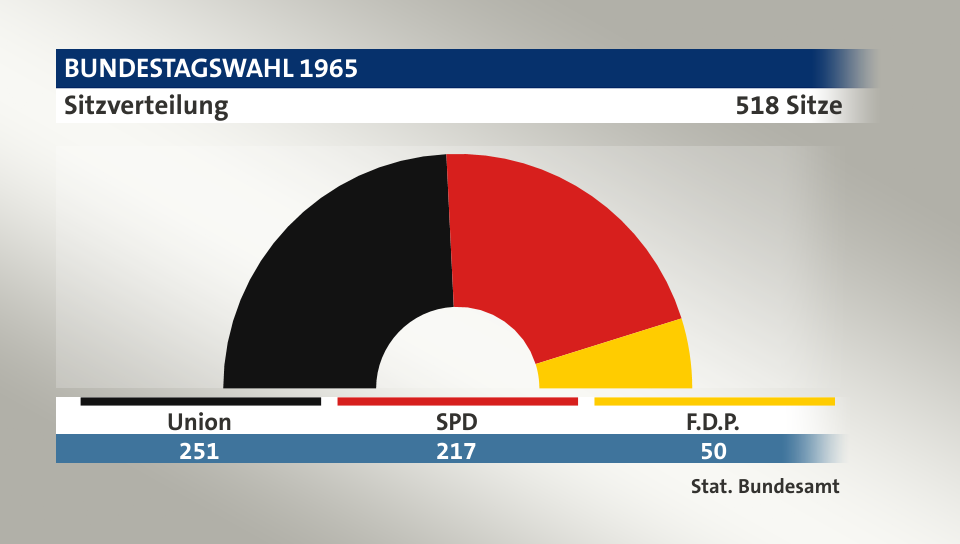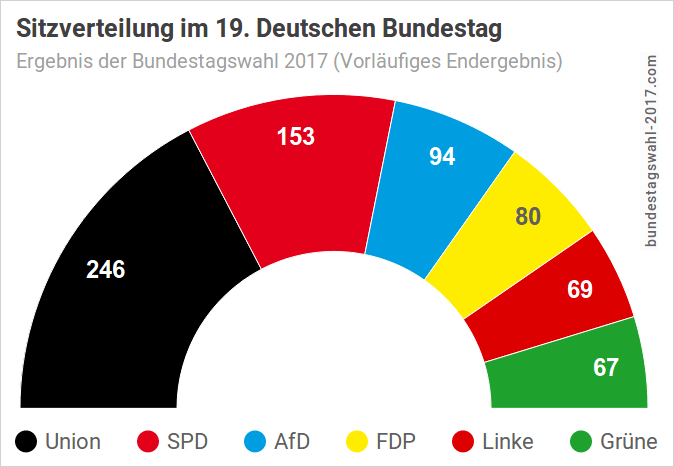The Colour of Politics!
As a European, the one thing I find most confusing about American Politics is that the Republicans are ‘Red’ and Democrats ‘Blue’; the complete opposite to most of the rest of the world.
It does not matter how hard I try I can never get use to a ‘Right-wing’ political party using the colour of Socialism and Communism: The colour of ‘Revolution’ and ‘Blood’.
Red has been associated with left-wing politics since the French Revolution of 1789-1799.
“The Red Flag" - Anthem of the British Labour Party https://youtu.be/sHoyoKgRq5U
In European Politics ‘Blue’ is the colour of the elite, associated with ‘Royalty’, because until the Industrial Revolution making the dye for the colour blue was prohibitively expensive, and only affordable to the ‘ruling classes’.
Therefore, in European Politics it’s the right-wing political parties, like the Conservative Party, who associates themselves with the colour blue. So for a European, it is confusing to see the Republicans adopt red and not blue as their ‘party colour’.
So why have the Republicans adopted a colour so strongly associated with left-wing politics: Revolution, blood; ‘Socialism’ and ‘Communism’.That's an interesting observation. And true, it used to be that blue was the conservative colour and red the progressive colour. (To put them bluntly in two camps.) But much has changed...
In Spain we've got three colours more at the moment.
The colour gamma we have in Spain at the moment is:
Green - Extreme right wing (VOX)
Blue - right wing (PP)
Orange - centre right (Ciudadanos)
Red - centre left - PSOE (Labour)
Purple - left wing. (Podemos)
Yellow - CUP (Left wing nationalism Catalan Party)
The parties in The Netherlands (13 at the moment) are even more colourful and also confusing.
VVD - right-wing - Blue
PVV (Party for Freedom) - extreme right-wing - Blue
CDA - Christian Centre - Green
D'66 - Progerrive Centre - Green
Groen Links - Progressive - Green
SP (Socialist Party) - Socialist - Red
PvdA (Labour Party) - Centre-left - Red
CU (Christian Union) - conservative - Blue
Party of Animals - Progressive - Green
50+ (50+ party) - Conservative - Purple
SGP (Political Reformed Party) - Conservative - Orange
DENK - (Party for Minority rights and Muslims) - Left wing-ish Turquoise
FvD (Forum for Democracy) - extreme right-wing - Red
Lots of flavours to choose from.
As you can see the Dutch purple is conservative and the Spanish progressive.
Labour is in most countries a middle of the road centre party and shifted to the right, compared with the ´80s And the new Green parties in Germany, the Netherlands and other countries are the new progressive parties.
In Spain there is no Green party. We have a Purple party Podemos that has its roots in the occupy the squares movement. (occupy Wallstreet was a copy of what happened in Spain) Podemos broke the two-party deadlock that ruled Spain since Franco. And now it has become a much more democratic country with more parties to choose from.Thanks for the feedback peterstreep.
For simplicity I just referenced the two current main opposing parties in Britain; Labour & Conservatives. But for completeness, the full colour range of politics in the UK is:-
• Conservatives (right-wing, capitalists) = Blue
• Liberal Democrats (Centralist politics) = Gold & Orange
• Labour (left-wing Socialists) = Red
• Plaid Cymru (left-wing Socialists) = Gold & Green
• Scottish National Party (SNP) (left-wing Socialists) = Yellow & Black
• The Green Party (left-wing) = Green
In Northern Ireland:-
• The Unionist parties (hard right wing) = Orange colours, and
• The Nationalist parties (hard left wing) = Green colours.
The one thing that is striking about UK Politics is that as well as red, the colour ‘Green’ is also associated with left-wing politics.As we now face a climate crisis, Green politics are becoming more important than the old school labour and union politics.
When I hear labour leaders talking about the tantra of more honest jobs, "For the Many, not the Few". etc. it sounds to me incredible dusty and old fashioned. The labour parties in Europe have become centre parties that act like dinosaurs. Out of touch with the world crisis, we are facing.Yep, in Britain ‘New Labour’ under Tony Bair was regrettably very much more centralist from 1997. So it was a delight when Jeremy Corbyn, very old school Labour, became Party Leader in 2015; but since Jeremy Corbyn stepped down, we are unfortunately likely to be heading back to ‘New Labour’.
Actually, the slogan in the British Labour Party "For the Many, not the Few" was a Jeremy Corbyn slogan, and was quite radical (left-wing), as behind the slogan the Policies were for a ‘Redistribution of Wealth’ e.g. part of the Labour's election manifesto last year was for Companies (with more than 250 employees) to hand 10 per cent of their shares to their workers over 10 years (1% per year). The shares would have then been transferred into an “inclusive ownership fund” run by the unions, giving unions a place (voice) on the board, and employees a yearly pay out from ‘Dividends’ of up to £500 per worker per year.
But yes, as we face a ‘Climate Crisis’ the Green Politics are most certainly becoming more important than old school politics. And now that the Green Party are part of the Irish Republic Coalition Government, that’s going to boost the strength of Green Policies within the EU; which is a good thing.
Think about it and it does halfway make sense. The right in America are against tyrannical government over reaching into people's private lives. Just like monarchies attempted to. So, in that respect, they could be considered radical. The tactics of the Ieft are to always push their ideas as 'more learned' the powers that be in the party are 'limousine liberals'.
Maybe the red doesn't really describe the right but the blue of the left suits your definition to a t.I don’t know; the one thing that worries me about American politics is that all politicians, regardless to whether they are Republican or Democrat, are heavily funded by the ‘wealthy’ (wealthy corporations), including the gun lobby and big businesses.
And as 99% of the wealth in America is owned by 1% of Americans, it seems to me that the 1% wealthy in America (the elite) is pulling the political strings e.g. politicians are in the pockets of Industry?
One of the results of American politics being financed by big businesses is the ‘power’ big businesses have over politicians to keep the ‘status quo’ of the American system of ‘Laissez-faire Government’ (regardless to whether its Republic or Democrat); because it’s not in the interest of big businesses for the American Government to heavily ‘Regulate’ them; in contrast to European countries where Governments do heavily Regulate Businesses.
I am giving a European perspective; so I am sure the American perspective on this may differ!I can't argue with any of that. But, I think big business pulls the strings of most governments.
Nope, big businesses do NOT pull the strings of Governments in the UK or other European countries e.g. in the UK it is illegal for businesses to have influence over Governments, and plenty of safeguards are put in place to prevent it.
If you've been following the Brexit saga you'd know that pleas to the Conservative Government from Big Businesses have fallen on deaf ears; to the extent that big businesses in the UK ended up resorting to publishing open letters of protest to the Government in the National Newspapers; and even then the Conservative Government still ignored the big businesses pleas.
Also, with the current covid-19 crisis (unlike the USA) big businesses have had no influence, whatsoever, over the Conservative Government; which is why the UK is still in partial lockdown e.g. pubs, restaurants, cafes and hair dressers, who have been in total lockdown in the UK since the 23rd March, will not be allowed to reopen until the 4th July. And even then, the nightclubs are still in full lockdown in the UK, with no indication as to when they may be allowed to re-open again.
As an American, I had always associated the color red with Communism, but I had never put a color on conservatives. The way they treat women, I think yellow would be more appropriate than blue. But if blue is associated with nobility, this bunch of radical conservatives are anything but blue. So maybe that's why blue is for liberals who think they are taking the high road, which leaves red for conservatives. We also have a party calling itself the Green Party, so I guess they would be green. I don't associate any color with Libertarians. Do they have a color?
I was interested in your reference to the term ‘Libertarians’. It’s a term not used in British Politics, so I had to do some in-depth research to understand the term; which was quite educational.
In summary, Libertarians is a political philosophy of ‘anti-establishment’ which originated as a far-left-wing philosophy for political groups such as ‘social anarchists’, ‘libertarian communists’ and ‘libertarian Marxists’ etc., but in the 20th century (1960s) was also adopted by the far right (Republicans) as a political philosophy in support of maintaining the ‘status quo’ of Laissez-faire Government in the USA:-
The Philosophy of the far right in American, under the banner of Libertarian values being:-
“A strict priority being given to ‘Liberty’: With the need to maximize the realm of individual freedoms and minimize the scope of public authority”; which to me sounds very American.
The only political party in Britain that holds Libertarian values is the far-left Green Party.
So Libertarians (Liberty) is an socio-political concept shared by a number of anti-establishment political groups on both the far left and far right, so I guess the ‘colour of politics’ is more relevant to the those political groups touting Libertarianism, rather than Libertarianism itself.
Apparently every European country has its own set of colours, but the left, socialists are always associated to the colour red.
Here the set of colours for Germany:

Hasn´t changed much for the past 55 plus years.
Black = conservatives
Red = Socialists, Left Party
Blue = right Party
Yellow = Liberal democrats (Neoliberals)
Green = Self explaining
What seems to be really interesting is that European parliaments of today are represented by a whole rainbow of parties. This is really different to the USA.
Me think: European parties get funded mostly by tax money, while the US system is a corporate system. In the US you seem to buy yourself into the system. And as interested big money doesn´t want to ask favours from too many parties and fund them, they settled for the minimal denominator of having a choice: 2 parties. But may be i am wrong !!??I agree with you. Personally I don't find the US and also the UK not really democratic countries. As in the US, you only have a choice between two parties. Clinton or Trump, Biden or Trump.For the big coops it doesn't make much difference who wins. The system remains the same. (As long as it is not the Sanders or Cortez people with "radical" tax ideas. Like tax Amazon.)
The UK is not democratic as it has a first past the post system that keeps the two old parties in power. not every vote is equal.
In Spain also not every vote is equal as a percentage of votes does not equal percentage of seats. In the Netherlands, every vote has the same value and if 20% of the votes goes to a party, the party gets 20% of the seats. Sounds fair to me.
The advantage is that you always have a coalition government, and have to negotiate, just like in Germany. Which I think is a good thing, as you have more different opinions by the decision making process.
In the UK and US there is always only 1 party who governs. Just like China or Russia...(To put it pretty bluntly.)
Nevertheless, the US and UK are rich countries, so it works I guess...I totally agree with you, the first past the post system is the bane of British Democracy.
The people did have a chance to change that in 2011, but unfortunately they chose not to: Idiots.
In the 2010 General Election the Conservatives had to form a coalition Government with the Liberal Democrats; and one of the main conditions the Liberal Democrats laid down for supporting the Conservatives in a coalition Government, rather than forming a coalition Government with Labour, was that the Conservatives would run a Referendum for ‘Proportional Representation’; which the Conservatives did in 2011.
Unfortunately, in the referendum the stupid public voted 32.1% in favour of ‘Proportional Representation’, and 67.9% against it. It, along with the Referendum for Brexit, just proves that you cannot trust the public to make the right choice in Referendums.
But I am sure, given time, electoral reform will happen in the UK, but not for perhaps another generation! Albeit some minor improvements have been made in recent years: For example:-
* Since 2012 (under the Conservative/Liberal Democrat Coalition in the UK) we now have ‘Proportional Representation’ for the Mayoral Elections, and
* The Scottish SNP (Socialist) Government lowered the voting age in Scotland to 16 in 2015, and
* The Welsh (Socialist) Government in Wales is set to follow suit, and lower the voting age in Wales in 2021.I don't think you can blame the public. I think you can better put the blame on the tabloids.
What I heard was that the choices on the referendum paper where pretty complicated and vague.
I think the Lib Dems had an opportunity and they were fooled by the conservatives. They lost a lot of future votes and support because of the handling of this issue. My wife supported Lib Dems at that time but was highly disillusioned and is now voting green.
I think that you are right and they should not have used the referendum for this. Although a referendum looks like the most democratic tool possible, it is highly debatable as we have seen with Brexit and Cambridge Analytica.Yep, that seems a fair assessment. At the 2010 General Election the Liberal Democrats were riding high, and set to become a major third force in British Politics; but they blew it by giving their support to the Conservatives instead of Labour.
At the 2010 General Election the Liberal Democrats had two choices, put the Conservatives in power, or put Labour in power. They spent a week talking to both parties and in the end opted to give their support to the Conservatives; contrary to the wishes of their supporters. Something their supporters haven’t forgiven them for, so come the 2015 General Election the Liberal Democrats were punished by their voters for supporting the Conservatives, and lost over half their seats, which they’ve still got recover from.
Over that same time period, because of the Conservatives bitter opposition to Scottish Independence, and because of Brexit, the Conservatives have lost their powerbase in Scotland, with virtually all the previously held Conservative Scottish seats for the UK Parliament going to the Scottish National Party. So consequently, the Scottish National Party has now become the third largest party in the UK Parliament, and coupled with the Scottish National Party being the party in power in the Scottish Parliament Elections; the Scottish National Party (a left-wing Socialist Party) has become the bane in the side of the British Conservative Government.
Not only does the Scottish Government run a left-wing Socialist programme in Scotland, while the Conservatives run a right-wing capitalist programme in England and Wales e.g. Scotland’s Social reforms, but with the SNP (Scottish National Party) in power in Scotland, Scotland has the Greenest Policies in the UK, to the extent that Scotland is a world leader in Research and Development in Tidal and Wave Power (Renewable Energy).
Albeit, to their credit, the Conservatives has made Britain a world leader in Research and Development in off-shore Wind Power, and surprisingly (in spite of great pressure from the Oil Companies) has Regulated against Fracking in the UK to the point that Fracking is not economically viable.
But the one piece of ‘sweet vengeance’ dished out against the English by the SNP (Scottish National Party) in the Scottish Government, is the SNP Policy on University Fees. Back in the mid-1990s the Conservatives abolish Free University Education; my wife was at university at the time (as an adult student), and she finished her last year (of three years) in the year before free university education ended (so she was lucky). What is alarming though, if you read up on the subject now (including in Wikipedia) history has been re-written to blame Labour? A recent change, as when I last referenced the subject on the Internet just a few years ago, history was still recoded as it happened.
That aside, currently in the UK (except for Scotland) to go to university you now have to pay tuition fees. However, not only has the Scottish Government kept university free in Scotland, but their twist of revenge is that in Scotland University is free for all UK and EU citizens unless you are English, in which case you have to pay for your education.I always had a week spot for the Scots.
Thanks, for the extra info. Learning should be free as it should be accessible for all.
To bad they blew the independent referendum. I think a lot of people who voted against at the time regret their decision now. As they are in general very European minded.
What do you think, will there be Scotland become independent in the near future, signaling the end of the UK?Yes, many Scots do regret their decision because they were duped by both Labour and Conservative who gave their absolute assurance to the Sottish voters that if they voted to remain within the UK that their continued membership of the EU was safe.
Yes, in spite of resistance from Boris, and the Conservative Party, it is only a matter of time before Scotland gains it’s ‘Independence’ from England, and then seek membership of the EU.
Likewise, Sinn Fein (the political wing of the IRA) is getting ever closer to realising their prime goal of Irish Reunification; which would mean England also losing Northern Ireland.
Even in Wales, although small at the moment, there is growing support for Independence from England.
The only Celtic Nation that is still safely in the clutches of England is Cornwall (kernow).
The bitter struggle between England and its four Celtic Nations (Scotland, Ireland, Wales and Cornwall) hasn’t ceased since the Roman Invasion of England 2,000 years ago.
100 years ago England (British Empire) controlled 24% of the worlds land mass, and 23% of the world population. Since then, bit by bit England has lost its Empire; sometimes peacefully, sometimes violently e.g. the Irish civil war which led to England having to let go of what is now the Irish Republic.
As a result of the violence the Irish Independents (Republic of Ireland) caused in the 1920s, the British (English) Government attitude has since become one of ‘The Right of Self Determination’ (the ‘Will’ of the ‘People’) e.g. determined via Referendums.
Under this new attitude by the English Governments of ‘Self Determination’ via Referendums the Scottish People voted in favour of a ‘Scottish Assembly’ (devolved powers from England) in 1979, by 51.62% in favour.
Then in 1997 the Scottish people voted for a Scottish Parliament (semi-independence) by 74.29% in favour.
As part of the Northern Ireland Peace Treaty of 1998, the Northern Ireland Assembly (shared power between the two opposing sides) have the legal right to call a Referendum for reunification of Ireland any time they like; which is Sinn Fein’s prime objective. However, such a Referendum is opposed by the British Protestants living in Northern Ireland; who until now have had the marginally larger population, and who want to remain British.
However, over the past 10 years support for Sinn Fein has been steadily increasing, and with Brexit there are a small number of Protestants living in Northern Ireland who are pro EU, and now more sympathetic to Irish Reunification as a way of getting back into the EU. So currently Sinn Fein are close (may be within the next few years) to being able to force through calling for a Referendum on Reunification within the Irish Assembly (Local Government).
The people of Wales are not as ‘Radical’ as the Scots, or the Irish Celts, so their path to Independence is a longer route.
In 1979 only 20.26% of the Welsh people voted in favour of a Welsh Assembly (Devolved Powers), so it wasn’t until 1997 that the Welsh voted in favour of a Welsh Assembly; by a slim margin of just 50.3% in favour. However, as Referendums under British Law are only ‘Advisory’ and not ‘Legally Binding’, a simple majority is all that is needed! So in 1997 the Welsh took their first (tentative) step towards potential ‘Independence’.
In 2011, another Referendum in Wales seeking further powers for the Welsh Assembly was approved by the Welsh people with a large majority vote of 63.49% in favour. This change gave powers to the Welsh Assembly to transform itself into a Parliament (Semi-Independent from England) with a majority vote in the Welsh Assembly of 80% in favour, as an alternative option of chancing a Referendum (where 50% is required). This is the route the Welsh Assembly is currently pursing, in the hope of becoming a Parliament by 2021. Under British Law, under the principle of ‘self-determination, the next step from a Parliament is a Referendum on Independence; so if Scotland and Northern Ireland do break away from England, Wales may well follow in due course, and then seek membership of the EU.
Cornwall is the only Celtic Nation still firmly in the grips of England, although in 2014 the Conservative Government did finally grant ‘National Minority’ Status to Cornwall; which means that Cornwall now has the same ‘protected’ legal status as the other Celtic Nations in the UK (Scotland, Northern Ireland and Wales); although it will be a very long time before there is enough support in Cornwall to seek having their own ‘Cornish Assembly’ (Self-Determination).
Below, the first video is part of the Cornish campaign in 2012 for legal status as a Celtic ‘Minority Nation’, and the second video is from 2014, when the British Government granted that legal status.
Kernow (2012) https://youtu.be/-nN9I_7djgo
Cornwall granted national minority status by the British Government (2014) https://youtu.be/vmzA8v3H5nw
I was interested to see the CDU (Union) has chosen black as their ‘Party Colour’. Quite intrigued as traditionally ‘black’ is the colour associated with extreme politics like ‘anarchism’ (left wing), fascism (right wing), Jihadism and Pirates; and I would NOT consider the CDU an extreme group, so I’d be interested to know why they chose ‘black’?
Yep, you are right, in the USA the Republics and Democrats are predominantly funded by Corporations, and thus in the pockets of ‘Big Businesses’. While in contrast, in Europe political parties are not primarily funded by ‘Private Industry’ and therefore are not the puppets of Wealthy Businessmen.
In fact in the UK the ‘Funding’ of political parties is heavily ‘Regulated’ to make it illegal for a political party to be under the control of ‘Wealthy Businesses’. Also in the UK, spending on political election campaigns are also heavily Regulated and Restricted, so as to ‘level the playing field’ and make it more affordable for the smaller parties to campaign on an equal footing to the larger political parties.
Also, in the UK (as you said) political parties are partly funded by tax money, so as to further ‘level the playing field’, and make it more affordable for the smaller political parties to campaign on a level playing field.
A further legal requirement in the UK is that British TV Channels have to balance the air-time they give to each political party, and restricting the air-time to the bigger parties, during an election campaign, so that the smaller parties are given a more level playing field.Arthur, the CDU/CSU or short union holds the word Christian or Christianity in its name.
And Christianity was associated with the black robes of priests, pastors. And political opponents found it adequate to paint the CDU black. At least that is what i found in the German version of this wiki-link:
https://en.wikipedia.org/wiki/Political_colour
https://de.wikipedia.org/wiki/Politische_Farbe
The Red Flag:
The Lyrics of the British Labour Party Anthem
The people's flag is deepest red
It shrouded oft our martyred dead
And ere their limbs grew stiff and cold
Their hearts' blood dyed in every fold
[Chorus]
Then raise the scarlet standard high
Beneath its folds we'll live and die
Though cowards flinch and traitors sneer
We'll keep the red flag flying here
It waved above our infant might
When all ahead seemed dark as night
It witnessed many a deed and vow
We mustn't change it's color now
Chorus
It well recalls the triumphs past
It gives the hope of peace at last
The banner bright, the symbol plain
Of human right and human gain
Chorus
It suits today the meek and base
Whose minds are fixed on pelf and place
To cringe beneath the rich man's frown
And haul that sacred emblem down
Chorus
With heads uncovered swear we all
To bare it onward 'til we fall
Come dungeons dark or gallows grim
This song shall be our parting hymn
ChorusInteresting read about it.
Red states and blue states
The choice of colors reverses a long-standing convention of political colors whereby red symbols (such as the red flag or red star) are associated with left-wing politics and right-wing movements often choose blue as a contrasting color.[11] Indeed, until the 1980s Democrats were often represented by red and Republicans by blue.[1] According to The Washington Post, journalist Tim Russert coined these terms during his televised coverage of the 2000 presidential election.[12] That was not the first election during which the news media used colored maps to depict voter preferences in the various states, but it was the first time a standard color scheme took hold; the colors were often reversed or different colors used before the 2000 election.Thanks for the link IslandBites; an interesting read.
It’s interesting how the two political parties in the USA didn’t establish their own ‘logical’ party colours; but still doesn’t answer ‘why’ they didn’t establish their own colours early on?
The other thing that puzzles me is that (to the best of my knowledge) neither the Republics nor Democrats in the USA have their own anthems! I know that not all political parties around the world have anthems, but many do, and anthems do help to embrace solidarity, and raise moral, during election campaigns.
The Political Parties with Anthems in the UK, and their chosen anthems, are:-
• Conservatives: Land of Hope and Glory https://youtu.be/i_ROlkMOL9s?t=45
• Labour: The Red Flag and Jerusalem (both, as sung at Labour Party Conference each year) https://youtu.be/-SHhXMzXFl0
• Liberal Democrats: The Land
• SNP (Scottish National Party): Scots Wha Hae https://youtu.be/CKT7qxk9-pw
I can’t find a copy of the Liberal Democrats Anthem on YouTube, but the song “The Land” is sung to the tune “Marching Through Georgia”, and the lyrics are:-
Sound the call for freedom boys, and sound it far and wide,
March along to victory for God is on our side,
While the voice of Nature thunders o'er the rising tide,
"God gave the land to the people!"
Chorus:
The land, the land,
'twas God who made the land,
The land, the land,
The ground on which we stand,
Why should we be beggars
With the ballot in our hand?
God made the land for the people.
Hark the sound is spreading from the East and from the West,
Why should we work hard and let the landlords take the best?
Make them pay their taxes on the land just like the rest,
The land was meant for the people.
Chorus
Clear the way for liberty, the land must all be free,
Liberals will not falter from the fight, tho' stern it be,
'Til the flag we love so well shall fly from sea to sea
O'er the land that is free for the people.
Chorus
The army now is marching on, the battle to begin,
The standard now is raised on high to face the battle din,
We'll never cease from fighting 'til the victory we win,
And the land is free for the people.
Chorus
One thing you might note if you listen to political party anthems is that some are patriotic, like the Conservative anthem, and some are revolutionary, like the Labour, Liberal Democrat and Scottish National Party anthems.
"A further legal requirement in the UK is that British TV Channels have to balance the air-time they give to each political party, and restricting the air-time to the bigger parties, during an election campaign, so that the smaller parties are given a more level playing field."
When I was working in broadcasting in the 1970s and early 1980s, the industry was regulated by the U.S. Federal Communications Commission. The Fairness Doctrine. The basic tenet was:
"The fairness doctrine of the United States Federal Communications Commission (FCC), introduced in 1949, was a policy that required the holders of broadcast licenses to both present controversial issues of public importance and to do so in a manner that was—in the FCC's view—honest, equitable, and balanced. The FCC eliminated the policy in 1987 and removed the rule that implemented the policy from the Federal Register in August 2011.[1]
The fairness doctrine had two basic elements: It required broadcasters to devote some of their airtime to discussing controversial matters of public interest, and to air contrasting views regarding those matters. Stations were given wide latitude as to how to provide contrasting views: It could be done through news segments, public affairs shows, or editorials. The doctrine did not require equal time for opposing views but required that contrasting viewpoints be presented. The demise of this FCC rule has been considered by some to be a contributing factor for the rising level of party polarization in the United States.[2][3]"
https://en.wikipedia.org/wiki/FCC_fairness_doctrine
I placed "equal time" in italics because the Equal Time Provision was the most controversial and misconstrued part of the doctrine. I don't want to get into that here, but as a broadcaster during that time period, I know that even political liberals were wanting to be rid of this provision, and it probably was a cause of the demise of the whole rule during deregulation.
During the Republican presidency of Ronald Reagan the "deregulation era" started, and the entire Fairness Doctrine was repealed. So the U.S. used to have a similar provision in our laws as the UK, which would have been under the Equal Time Provision of the Fairness Doctrine. Our conservative Republican Party got rid of it, and the rest if history.Thanks for that MizBejabbers, very enlightening, and educational; it’s a shame that the ‘fairness doctrine’ was deregulated under Reagan, a great loss to fair and free democracy.
I did write my piece in ‘general’ terms for the benefit of a wider (American) audience; but as a former broadcaster you may appreciate the more technical phraseology that’s specific in British Law. The Regulations governing political coverage hasn’t changed a great deal over my lifetime, but the current Regulations in the UK is covered by the ‘Communications Act 2003’ passed by Labour in 2003, and the Regulatory Body (watchdog) is Ofcom (The Office of Communications).
In summary, the wording of the Act is that “In the UK the Communications Act 2003 prohibits political advertising on television or radio; political parties are instead allocated broadcast slots (usually around five minutes long) free of charge on broadcast channels using a formula set by Parliament e.g. Party Political Broadcasts.
In practice this means that ‘Registered Parties’ generally qualify for at least one PPB (Party Political Broadcast) per year where:-
In each nation of the UK (England, Scotland, Wales and Northern Ireland), parties will be offered one or more PPBs over a 12-month period if:
• A party holds one seat or more in that nation in any relevant parliament or assembly e.g. the Green Party who currently have one seat in Parliament; and
• Evidence of their past electoral support and/or current support at a particular election or in that nation means it would be appropriate to do so.
• But No PPB is permitted during an election or referendum period (which in the UK is the six weeks leading up to Election Day).
In the confines of the 2003 Act, the Broadcast Channels referred to are the BBC, ITV, C4 & C5 (the four main broadcasting channels in the UK, who are all heavily regulated by the Government either by Charter or Franchise).
As regards the TV (or radio) ‘political’ ‘Impartiality’ in the UK during for example news reporting; the precise wording of the 2003 Act is:-
“Due weight must be given to the coverage of parties and independent candidates during the election period. In determining the appropriate level of coverage to be given to parties and independent candidates, broadcasters must take into account evidence of past electoral support and/or current support. Broadcasters must also consider giving appropriate coverage to parties or independent candidates with significant views and perspectives.”
And any complaints by the public or any aggrieved political party, claiming a broadcasting channel hasn’t been ‘impartial’ is dealt with by Ofcom, who can (and does) impose heavy penalties on the Broadcasting Channels.
I do hope that someday something similar to the ‘fairness doctrine’ can be re-regulated in the USA.Wow, how enlightening. Thank you. In this day and time, free speech in the U.S. has come to mean the political party that yells the loudest and the longest. I would like to see some kind of regulation also. Right now the closest we have to any kind of controls seems to be on social media because the last presidential election was such a social media free-for-all that that in retrospect, it was pretty much controlled by Russian hackers who controlled the great unwashed in our country. We are now living with the result.
Yes, the UK has also been blighted by the ‘Social Media free-for-all’ in elections and referendums in recent years; with much of the interference being traced back to Russian hackers swamping Facebook.
It’s an issue which has concerned the Conservative Government since the Brexit referendum back in 2016, so much so that Theresa May (Conservative Prime Minister at the time) set up an Inquiry in March 2017, with a view of introducing Regulations to monitor and control ‘Internet’ content.
Resulting from that Inquiry, the UK Conservative Government published a ‘white paper’ in April 2019, giving a 12 week consultation period to the Government’s proposals for Legislation.
The proposed Legislation being:-
“Strict rules that will require firms to take responsibility for their users and their safety, as well as the content that appears on their services; and if Social Media companies failed to do so they would face large fines or being blocked from being accessed in the UK. Internet companies that break these rules could even see senior management held personally liable for the failings e.g. a veiled shot at Facebook to take responsibility for what appears on its platform.
Following the consultation period, Boris (current Conservative Prime Minister) announced the proposals for Legislation in Parliament in February of this year e.g. part of the Governments agenda for new laws this year.
Under the proposals, Ofcom would be the watchdog. Also, the newspapers, who support the Legislation in principle, have lobbied the Government to make newspaper exempt from the new Legislation on the grounds of ‘Freedom of the Press’; with the Mail (who are renowned for publishing ‘fake news’) being the most outspoken newspaper.
Boris has made a verbal promise to the newspapers that they will be exempt, but they are still a bit jittery because he hasn’t yet put that promise in writing, or clarified the details of any exemption.
However, with the current covid-19 pandemic, most of the UK Government’s Agenda has been put on hold; so although the Legislation is delayed, the days are numbered for Facebook, before they have to take responsibility of what appears on their platform where it’s viewable in the UK.
https://www.theguardian.com/media/2020/ … censorship
The people's flag is deepest red,
It shrouded oft our martyred dead
And ere their limbs grew stiff and cold,
Their hearts' blood dyed its every fold.
So raise the scarlet standard high,
Beneath its shade we'll live and die,
Though cowards flinch and traitors sneer,
We'll keep the red flag flying here.
The Socialist Anthem sung at the Labour Party conference in Britain.Yep, a reminder of the harsh sacrifices made by the lower classes in their fight during the struggle to win the freedoms and rights we enjoy today.
Related Discussions
- 39
Cuba: Capitalism vs. Socialism
by ga anderson 5 years ago
Sanders' positive comments about Cuba's socialism prompted a look around.I found plenty of anti-Bernie thoughts, but I kept looking until I found one that I thought was least biasedMy thoughts:First, Cuba has a lot of problems, and not a few of them are caused by American sanctions. So, we are not...
- 32
Political Labels: Barriers to Progress?
by Faye V 3 years ago
I feel this would be very hard to do on a Political forum. Most threads represented here are political in nature, and the line is well drawn via the thread title at times. It is very hard to get across that people, in general, should not be categorized, set into a group void of the fact that people...
- 80
Conservative, Socialist, Libertarian, Liberal - What is the Difference
by Scott Belford 6 years ago
Many people who call themselves Conservatives, IMO, aren't. Many people who Conservatives call Socialists, aren't. In studying politics, I ran across a couple of lectures which identified what the professor called minimal-state liberals (Libertarians) and active-state liberals (modern...
- 15
The Two Party System is the Root of Most of America's Problems
by Ralph Schwartz 8 years ago
I've read countless numbers of threads about partisan political talking points over the years. They range from abortion, gun control, immigration, social justice, healthcare, protected classes of people, voting rights, and national defense; just off the top of my head. About half of...
- 14
Are Conservatives Actually Counter-revolutionaries?
by Scott Belford 6 years ago
From The Reactionary Mind by Corey Robin (as a counter to The Conservative Mind by Russell Kirk.Edmund Burke and Russell Kirk like to think conservatism is an ideology of Prudence and Moderation (as well as Prejudice - as in prejudgment)However, Michael Oakeshott (1901 - 1990), political theorist,...
- 19
Outrageous
by tksensei 16 years ago
In the extreme:http://www.foxnews.com/story/0,2933,541680,00.htmlhttp://www.foxnews.com/story/0,2933,541629,00.htmlhttp://www.foxnews.com/politics/2009/08 … r-release/












